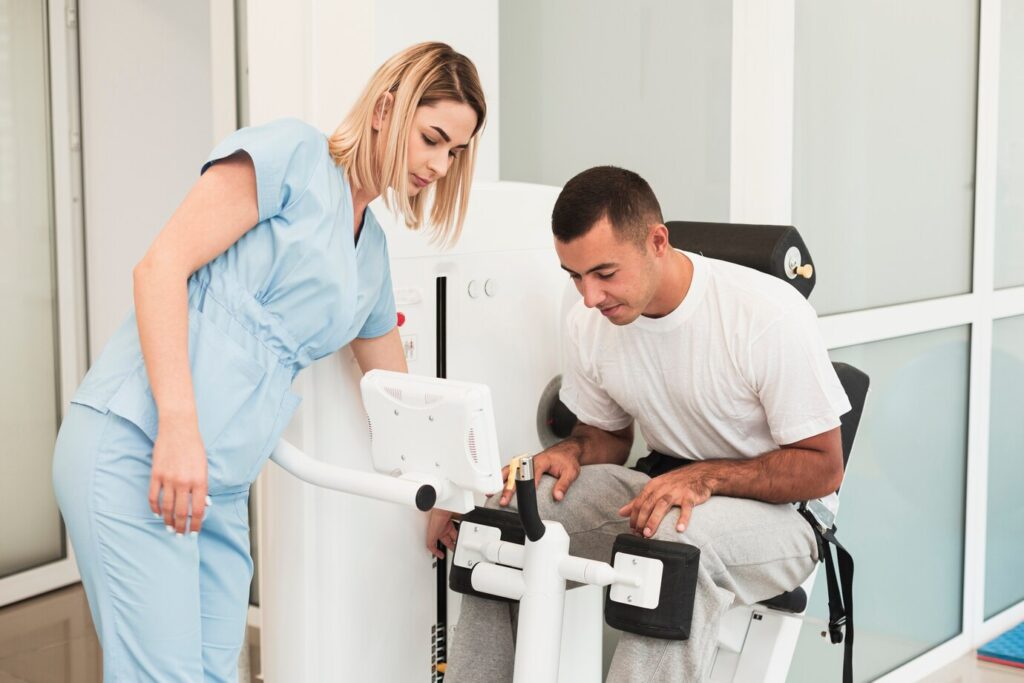Post-Surgical Rehabilitation
Post-Surgical Rehabilitation
Post-surgical rehabilitation is a critical part of the recovery journey following surgery. It is designed to promote healing, restore mobility, reduce pain, and help patients return to their normal routines safely and effectively.
At our center, Prof. Dr. Hafiz Muhammad Asim leads a specialized team dedicated to providing comprehensive, personalized rehabilitation plans tailored to each patient’s surgery and recovery goals.
Why Is Post-Surgical Rehabilitation Important? Surgery is only the first step toward recovery. Without proper rehabilitation, patients may experience:
- Limited mobility
- Muscle weakness
- Chronic pain or stiffness
- Delayed healing
Who Can Benefit? Our post-surgical rehabilitation programs are ideal for individuals recovering from a wide range of procedures, including:
- Orthopedic Surgeries: Joint replacements, ligament repairs, and fracture treatments (e.g., knee, hip, shoulder surgeries)
- Cardiac and Thoracic Surgeries: Recovery from heart or chest operations
- Neurological Surgeries: Post-operative care following brain or spinal cord surgeries
- Abdominal Surgeries: Procedures involving the digestive system, hernia repairs, and more.
Conditions

The Role of Physical Therapy in Recovery
Under the guidance of Prof. Dr. Hafiz Muhammad Asim, our skilled physical therapists:
- Design personalized rehabilitation plans tailored to the type of surgery and the patient’s unique condition.
- Provide expert instruction and support to help patients safely perform rehabilitation exercises.
- Monitor progress closely and adjust treatment as needed to maximize recovery and prevent setbacks.
Key aspects of post-surgical rehabilitation include
Physical Therapy
A vital component of recovery, physical therapy focuses on rebuilding strength, enhancing flexibility, and restoring normal movement patterns.
Pain Management
Effective pain relief methods—such as cold therapy, controlled movement, and hands-on techniques—help reduce discomfort and inflammation during healing.
Use of Adaptive Equipment
Tools like braces, crutches, or walkers support healing tissues and promote safe, confident mobility in the early stages of recovery.
Patient Education and Guidance
Teaching proper body mechanics, activity limitations, and post-operative care helps patients avoid setbacks and encourages active participation in their recovery.
Emotional and Psychological Support
Managing anxiety, depression, or emotional distress is essential, as mental well-being greatly influences the speed and success of physical healing.